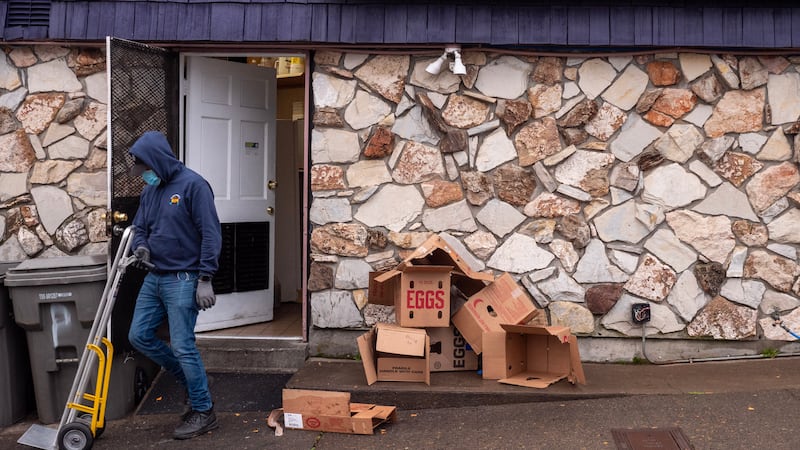The manual for my fancy new garbage disposal claims that letting it handle my food scraps is better for the planet than composting them. Surely this can’t be true—I love my green bin! —Matt G.
Which bin you love is your business, Matt. Personally, I don’t know why you’d pick the worst-smelling of the three available receptacles as your favorite, but what do I know? Our whole entertainment culture right now is almost entirely about butts, and I don’t get that either. (And for pretty much the same reason.) Perhaps I’m just…out of touch.
Just kidding! It’s the children and their jeweled butt plugs who are wrong. Still, the green bin (and composting in general) does deserve some respect. And so does the garbage disposal! Both of them do important work: They keep your food scraps from going to the dump.
We generally think of manmade materials like plastic as the villains of the landfill, but organic waste can cause trouble, too—it degrades into methane, a potent greenhouse gas. The green bin and the garbage disposal, however, mitigate this effect by letting the waste break down in a controlled environment (a composting facility and a wastewater treatment plant, respectively) where any methane can be captured.
That said, garbage disposals have a few impacts composting isn’t troubled by. For starters, washing all those macerated cantaloupe rinds down the sink uses a lot of excess water. That’s rarely a major issue in water-rich Portland, but if you’re writing from, say, the Klamath Basin, you might want to dial it back.
Another thing your fancy new garbage disposal might not be telling you is that, while sewer systems can obviously handle some solid waste, too much of it—puréed or not—can cause problems. This circumstance led New York City to ban garbage disposals in the 1970s. (The city relented in 1997.)
Portland’s wastewater infrastructure today is obviously very different from that of New York in the Jimmy Carter era, and I don’t know of any Rose City campaigns against garbage disposals. Still, there’s probably a reason the city offers restaurants a break on their sewer bill if they get rid of their garbage disposals.
I’ll cut to the chase: It’s close, but the green bin wins (ironically, by a nose). It’s probably just as well, too—there’s something about a receptacle lined with whirling blades that’s not very appealing either.
Questions? Send them to dr.know@wweek.com.
